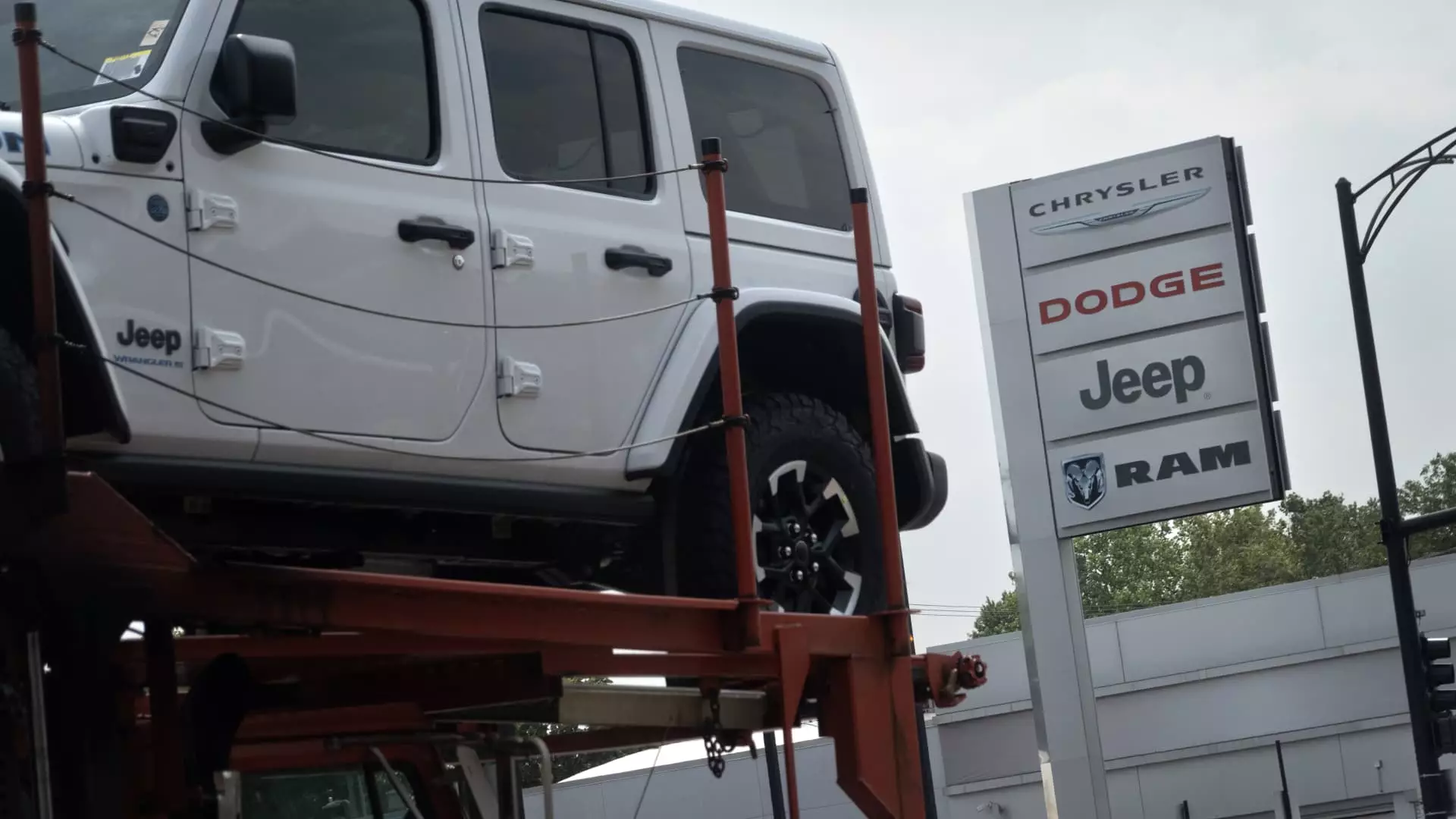As we reach the halfway point of the year, the U.S. auto industry is facing a mixture of positive and negative indicators. While the first half of the year has shown a 2.9% increase in auto sales compared to the previous year, there are growing concerns about sustaining this momentum in the coming months. Factors such as increasing vehicle inventory levels, rising incentives, and uncertainties surrounding the economy, interest rates, and the U.S. presidential election are contributing to a sense of apprehension among industry experts.
Cox Automotive, a prominent auto data and research firm, anticipates that the growth in auto sales will slow down during the second half of the year. The forecast suggests that by the end of 2024, total sales will reach approximately 15.7 million units, representing a modest 1.3% increase compared to the previous year. What’s noteworthy is that the growth in sales is expected to be primarily driven by commercial transactions rather than sales to individual consumers, marking a shift from previous trends.
While the current market conditions may present advantages for consumers, such as increased affordability and availability of new vehicles, they pose challenges for automakers. Many companies in the industry have reported record profits in recent years due to high demand and limited supply of vehicles during the pandemic. However, the scenario is expected to change with uncertainties looming ahead. Industry experts caution that maintaining the current sales growth might be difficult in the face of evolving economic and market conditions.
According to Cox Automotive, General Motors, Toyota Motor, and Honda Motor are poised to be among the top performers in auto sales during the first half of the year. Especially noteworthy is Toyota’s potential to challenge GM for the top-selling automaker position in the U.S. if its growth trajectory continues. On the other hand, some automakers like Tesla and Stellantis are facing challenges, with anticipated declines in sales through June. Stellantis, in particular, has witnessed a drop in its sales ranking in the U.S., prompting CEO Carlos Tavares to address operational issues within the company.
As the industry navigates through the second half of the year, the dynamics of the U.S. auto market are expected to undergo significant changes. With a shift towards commercial sales, decreasing retail share, and adjustments in pricing strategies, automakers will need to adapt to the evolving landscape. The shift from a seller’s market to a more competitive environment could lead to reduced new vehicle grosses and dealer profitability, as noted by industry experts. As uncertainties persist, the ability of industry players to respond effectively to changing market conditions will be crucial in determining their success in the upcoming months.


Leave a Reply